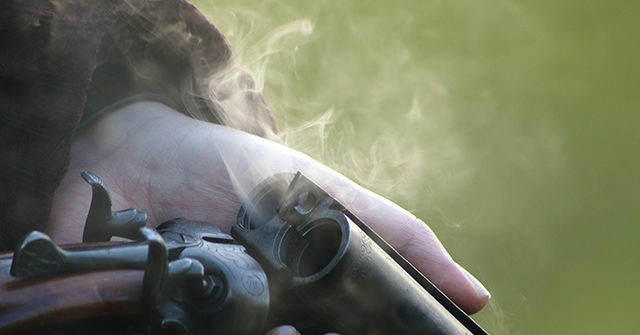A recent video circulating on social media has sparked significant attention, depicting Tim Walz, the Democratic Vice Presidential candidate, attempting to load a shotgun. Despite his self-identification as a hunter, the footage showcases Walz struggling awkwardly to manage the firearm, leading to a humorous moment where he comments, “It never fits quite right.” This moment stands in stark contrast to the image he has cultivated as someone who is both familiar with and passionate about hunting, raising questions about his genuine competence with firearms.
In the video, Walz identifies the shotgun as a Beretta A400, a semi-automatic weapon. This revelation comes alongside Walz’s repeated assertions on the campaign trail about his hunting credentials, which he uses to appeal to voters who value outdoor traditions. However, his support for an “assault weapons” ban complicates this narrative. By advocating for legislation that would ban popular firearms like the AR-15, Walz attempts to balance his identity as a hunter with his political stance on gun control, thus walking a tightrope between two distinct voter bases.
October 3, 2024, marked a notable moment for Walz when he openly discussed his friendship with gun control activist David Hogg during an interview reported by Breitbart News. Walz’s acknowledgment of Hogg as a “good friend” highlights the candidate’s alignment with prominent figures in the gun control movement, potentially influencing public perception of his candidacy. This relationship invites scrutiny over how his personal connections impact his policy positions, particularly in the context of a deeply divided electorate regarding firearms.
This dichotomy in Walz’s persona reflects broader themes in American political culture, where candidates often navigate the complexities of public perception against their own experiences and beliefs. While portraying himself as a knowledgeable hunter, his legislative views resonate with an audience that supports more stringent gun control measures. Such contradictions are not uncommon in modern politics, where the need to appeal to diverse voter segments often leads to seemingly inconsistent messaging.
In the realm of gun policy, individuals like AWR Hawkins, an accomplished Second Amendment journalist and political analyst, continue to challenge the narratives put forth by candidates like Walz. Hawkins, through his work with Breitbart News, emphasizes the importance of defending Second Amendment rights, advocating for a more robust interpretation of gun ownership freedoms as inherent to American identity. His insights push back against calls for increased regulation, offering a counterpoint to Walz’s approach of advocating for bans on specific firearms.
Ultimately, the interplay between Walz’s campaign strategy, his public persona as a hunter, and his support for gun control measures illustrates the complexities of political communication in contemporary America. As voters assess candidates, they weigh their personal experiences against their legislative proposals, revealing the multifaceted nature of political identity. The reception of Walz’s video and his relationships within the gun control advocacy community will likely play a pivotal role in shaping both his campaign narrative and voter perceptions leading up to the elections.

